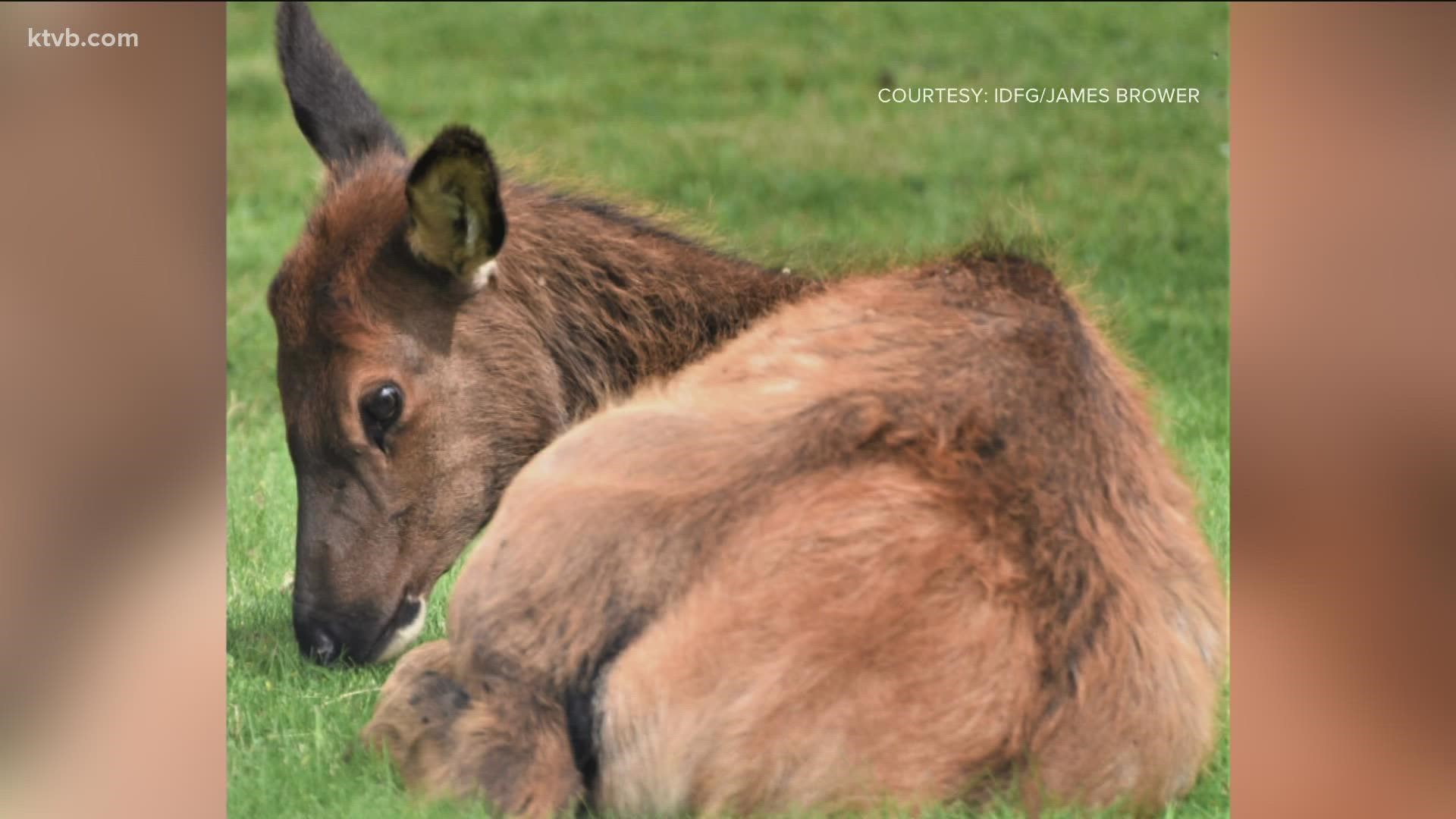BOISE, Idaho —
Idaho Fish and Game (IDFG) wants to remind the public to leave baby wild animals alone.
With Spring upon us, so is the peak baby wildlife season and as people venture outside to appreciate the warmer weather, IDFG says that they are bound to see young animals during the spring and early summer.
The animals may appear alone, without their mother anywhere in sight, but the best thing for people to do is leave the animals alone, according to IDFG.
While well-intentioned people’s first instinct may be to rescue these seemingly helpless animals, people often do more harm than good, according to IDFG.
Every spring IDFG receives calls from people who say they have “rescued” baby animals that they assume are lost, abandoned or orphaned. However, the animal’s mother is likely not far from where the animal was found and the well-intentioned people are interfering unnecessarily.
Animal parents will periodically leave their offspring for periods of time for numerous reasons: searching for food, rest, diverting attention from their more vulnerable young, and more. When it comes to wildlife babies, wildlife mothers know best, according to IDFG.
Deer, elk, pronghorn, and other mammals routinely leave their offspring in secure locations and leave to feed with the intent of returning later, sometimes several hours later. The young animals know instinctively to remain in the location their mothers left them.
As baby birds begin to mature, they often leave the nest in efforts to improve their flying skills. Adult birds continue to feed their young, even if they are no longer in the nest, until they can survive on their own.
An additional reason people should avoid interfering with baby birds this Spring is the presence of the highly pathogenic avian influenza that is currently infecting birds throughout Idaho. Moving infected birds, even ones which may not be showing any symptoms of the bird flu, could potentially spread the virus further, according to IDFG.
People who may spot infant animals should leave them undisturbed, and then, if people are concerned about the creature, IDFG suggests contacting the nearest IDFG office. Employees are happy to take calls, answer questions, and, if necessary, retrieve the animal, IDFG said.
IDFG added that people should not attempt to raise wild animals on their own. Infant wild animals require special care and feeding, that the average household is unable to provide, according to IDFG. Additionally, possession of most wildlife species taken from the wild is illegal in Idaho.
IDFG concluded by reiterating that Spring is when there is a wildlife baby boom, and people may see young animals with no adult in sight, and people are welcome to enjoy the sighting, but it is best not to interfere.
Watch more Local News:
See the latest news from around the Treasure Valley and the Gem State in our YouTube playlist:

